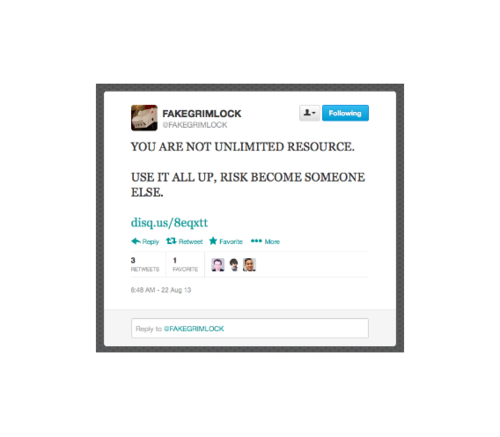About three weeks ago, I said goodbye to my team. I’ve been in need of a break and after spending a year and a half working on technical infrastructure for the dev community, the company is increasing their focus on enterprise products. It was a good time for me to step back.
Since leaving, I’ve been able to think more about what the last few years of my working life have looked like. In the span of the last three years I’ve helped two companies move from early-stage to mid-stage. I’ve handled user shitstorms, overseen dozens of launches, pulled all nighters, been through the fundraising process twice, managed people, turned customers into close friends, and kept countless moments of high emotion from tearing people apart. Along the way I developed a knack for breaking down silos between technical and non-technical teams. I love watching organizations grow and flourish. I’ve been humbled at what it is to be a manager, and to serve those who have entrusted some part of their career to me. This work is a privilege.
I’ll also be the first to say it. I’ve burnt myself out, hard.
I drove myself to unhealthy levels of exertion too hard for too long in pursuit of the next milestone.
I was over-investing myself in the organizations I was part of. I was making my work the one single point of failure for my ego.
After awhile, my friends never saw me anymore, I forgot why I ever liked the things I liked, and crossing off virtually any ‘to do’ list item took an excruciating amount of effort.
Why did this finally dawn on me? Historically, one of my biggest assets is my ability to think deeply about a messy problem, and formulate a single response that makes things click into place. I’m also good at simulating other people’s experiences and modeling interactions. It’s part of what made me a good community manager. After driving myself too hard for too long, my ability to do those things dulled.
I also realized I wasn’t fully listening to the things people would say to me. I caught myself categorizing what kind of conversation I thought I was entering ahead of time, associating a few normal behaviors with that type of interaction, and going on autopilot. Upon realizing this, I responded by pushing myself harder in an attempt to recoup lost productivity. Soon the combined momentum and pressure were taking on a life of their own. I was doing the next thing that presented itself because it seemed easiest at the time, and I was too harried to synthesize what the pieces added up to. I was struggling to connect with people.
You own your tools
If I stop, and think (which I haven’t done in years), I know damn well there’s a problem with all that.
The always-on, drive yourself into the ground, race to the top of Hacker News, pwn Demo Day approach is a specific tactic, and not a long term strategy. It needs to be implemented at certain critical points in a company’s life-cycle, assuming you’re trying to build a venture capital-scale business.
This tactic needs to be employed when:
1) you’re first starting out and successfully doing or not doing certain things (making a product, getting money in the bank) determines whether or not you have a company at all.
2) your entire company is pushing to meet a discrete and time sensitive deadline, the outcome of which is has been deemed similarly pivotal as the very earliest stages of your business. (in the style of #1).
That’s it. Those are the only times when the approach to work that I was taking are appropriate. (If you’re running a lifestyle business, you’re playing a different game all together, and more power to you.) And if you’ve convinced yourself that you’re always working in one of the two sets of parameters I described, thereby creating constant life or death urgency, you’re doing it wrong.
There are extenuating circumstances, but if you’ve made your working life into one long string of extenuating circumstances you’re designing for diminishing returns and eventual failure. You can either become amazing at self-regulating and prioritization overnight, or pull the plug, make a full stop, and engage in some serious self-assessment. Personally, the former wasn’t working for me, so I eventually chose the latter.
Well, what now?
It would be lovely if I could explain to you all the things I’ve figured out and the wisdom I’ve found. The reality is I’m still pretty turned about, and clarity takes awhile to cultivate. Fortunately, I’m already feeling more like myself than I have in a long time. After just three weeks, the haze is clearing. I’m also resisting the urge to dive back into a full time job at the first sign of relief. I can’t do my best work if I’m not a whole person, and I think I owe my future teammates that much.
My life’s work is too important to go through it mindlessly. That’s what I started doing, and I don’t want to keep compromising. I view work as a calling, and jobs are individual vehicles to help materialize some piece of the puzzle. I’ve proven that I’m incapable of doing anything half-heartedly. It lets me rally myself and those around me, but the dark side of this tendency can get seriously bleak.
I need to learn better self-management, so I’m going to keep taking time. I’m going to keep spending long aimless afternoons in the park, reminding myself of what makes me smile, and letting the bits of understanding filter in, packet by packet. I’ll keep writing, I’ll keep talking, I’ll keep renewing friendships, and I’ll keep thinking about how to do work that pays respect to either of the problem sets I outlined here.
I’ll keep you posted.
